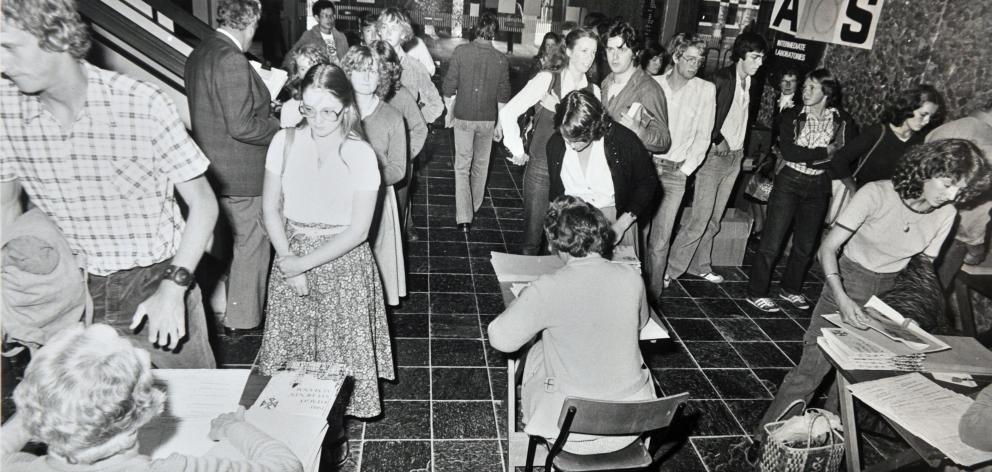
For most of the University of Otago's history, Orientation was an informal affair.
Structured celebrations began in their infancy by the 1920s when the Otago University Students' Association ran a "freshers welcome'' in Allen Hall.
By the 1960s, there was the occasional concert and some early-year dances, but festivities paled in comparison with Capping festivities later in the year.
Former students' association events manager Stephen Hall-Jones said Orientation began to take over in the 1970s.
"Before that people kind of did their own thing. There was the odd band, but nothing too formal. Capping sort of died, starting when they split up the cappings.''

An impressive musical line-up would usually be headlined by a large international act.
Throughout the next decade, events were created which became part of Orientation's fabric.
The toga party was a way of introducing new students and sports day was created partly as a way of appeasing the non-drinking crowd.
The weeks were filled out with market days and international food nights.
"It was sort of hard to describe, but the union lawn had sort of a circus atmosphere.''
When Rob McCann replaced him in the role in 2000 he wanted to bring in more people from outside the student world.
"I was very into the town and gown stuff. Connecting the students with the wider public.''
Attendance for Orientation events grew, he said.
"We started having cricket or rugby games at the same time and included that in the ticket. We tried to bring in new things where possible.''
Later that decade, some Orientation traditions grew out of control.
The Toga Parade was banned after festivities resulted in broken shop windows and littered streets in 2009.
Concerns about initiation traditions also led to Knox College in 2010 removing its outdoor bath in which students would dunk hall rule-breakers.
New opportunities were found for Orientation with the opening of Forsyth Barr Stadium in 2011. Shows developed a festival atmosphere and acts such as Macklemore and Six60 were able to be play to up to 5500 people.
Events manager Jason Schroeder said while the stadium was still a big part of the week, the executive wanted to bring celebrations back to campus.
It did this through events such as outdoor movies at the Museum Reserve and by expanding clubs day.
In Orientations past the events were money-makers for the students' association. With the expense of stadium concerts it worked now on a "break-even model'', he said.
The target audience has also shifted away from the wider public.
"We have events that they can attend, but our main focus is the students.''
